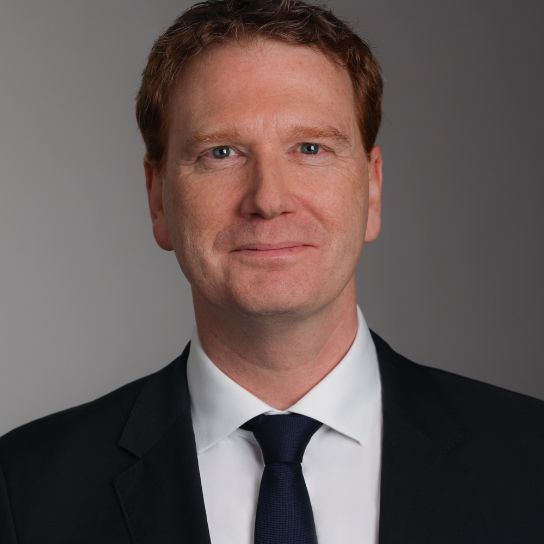On 3 August 2016 the Ministers Cabinet of the Government of the Islamic Republic of Iran passed a resolution (the “IPC Resolution”) to approve the “general terms, structure and model” of the Iran Petroleum Contract (“IPC”).
While many uncertainties remain, these general terms give a strong indication as to the key terms that will govern future IPCs. Consultants with whom we have spoken indicate that they believe that it is likely that the drafting and finalisation of the terms will take place through the bilateral negotiations with the first bidding parties, rather than being settled fully in advance.
Given the huge amount of international interest in this area, the IPC Resolution has been translated into English by the energy consulting company, Energy Pioneers Ltd, and the full text in English is available here.
The IPC Resolution confirms many of the key terms that were released during the two-day Tehran Summit conference, which was held in Tehran on 28 and 29 November 2015. HSF summarised the discussions that took place at this conference in our newsletter of 3 December 2015, which can be found here.
The IPC Resolution makes various key changes to the buyback contract and it is hoped that these changes will be looked upon favourably by both foreign investors and Iranian entities. The IPC Resolution explicitly states that priority will be given to the development of joint fields.
In summary the key changes are as follows:
- A longer term (up to a maximum of 20 years from the start of development operations, with the opportunity to extend further in the case of IOR/EOR projects);
- Ability of the foreign investor to be involved in operating the fields during production;
- A remuneration fee set as a $/bl or $/scf amount, established in order to incentivise production efficiency, and linked to the market prices for oil and condensate and also to the regional or contractual prices of gas;
- Incentives for higher risk fields, as well as IOR/EOR projects; and
- Requirements and incentives for the transfer of technology and know-how, as well as participation of Iranian entities in all phases of the project.
Key terms of the IPC
The structure of the IPC is also a risk-based service contract and therefore appears, initially, to be similar to the buyback structure. However, a number of key changes seem to have been made and these changes address many of the previous concerns that foreign investors had in relation to these contracts.
We have set out below the proposed key terms of the IPC (as put forward in the IPC Resolution) and what these may mean to investors.
| Contractor | The foreign investor is required to have an Iranian entity as its partner. The Iranian entity should be an Iranian exploration and production company, whose credentials have been approved in advance by the National Iranian Oil Company (“NIOC”) in accordance with terms and principles to be developed by the Iranian Ministry of Petroleum. This is intended to support and improve the capability of Iranian entities, one of the key objectives of the Iranian Government, but investors will need to be careful to ensure that they carry out adequate due diligence on any prospective partner - looking at financial, technical and reputational concerns. One important requirement to note is that the executive management positions of the contractor/operator have to be transferred gradually to Iranian nationals in order to facilitate the process and transfer of know-how and managerial skills to the Iranian entity. The foreign investor will need to allocate considerable effort in ensuring that such Iranian nationals are fully trained so as to minimise any production risk in the latter stages of the contract. |
|---|---|
| Term |
The term has been set at a maximum of 20 years for all contracts from the start date of development operations, with the opportunity to extend for a further 5 years in the case of IOR/EOR projects. For integrated exploration, development and production projects, the exploration period will be added to the contract’s 20-year period. This longer term should provide foreign investors with greater certainty and increased prospects of recovering costs and earning a return on investment. It should also help benefit Iran as it will provide an incentive for foreign investors to make longer term investments and implement measures to maximise the life of the field |
| Ownership of hydrocarbons and booking of reserves |
The IPC Resolution reinforces the principle of the right of sovereignty and public ownership of all oil and gas reserves through the Ministry of Petroleum of the Islamic Republic of Iran and states that “Oil, gas and condensate and all the other products discovered in the reservoir … wholly belong to the Islamic Republic of Iran; the oil, gas or condensate and all the byproducts of the production wholly belong to the [NIOC or its subsidiaries].” It therefore seems unlikely that foreign investors will be able to book reserves but this remains to be clarified. |
| Operatorship |
Unlike with the buybacks where the NIOC carried out all production activities, under the new regime the contractor is expected to remain involved as operator during this phase. It is unclear whether (as previously anticipated) a new operating company will be established, but the IPC Resolution makes it clear that the Iranian partner is expected to play a large role. In addition, if the NIOC believes that the participation of its subsidiaries is necessary during the production phase, provided that this is confirmed by the Ministry of Petroleum, then a joint operation agreement will be required between the contractor and the subsidiary of NIOC. The subsidiary of NIOC will be required to observe and fulfil all the technical and professional guidelines and operational plans of the contractor as approved by NIOC. This should assist in reducing the level of operator risk encountered previously under the buyback contracts. However, given the participation of an Iranian entity in the operatorship (and the executive managerial requirements noted above), it will be key for foreign investors to ensure that the Iranian entity has the capability to perform its obligations (and meet any funding requirements), and that the foreign investor maintains sufficient control over the operating company. It is clear that the intent of Iran is to develop fully functional stand-alone entities that can operate fields both domestically and internationally. |
| Minimum production levels | The field development plan will contain production targets and the contractor will be required to meet certain minimum production levels. It is not clear what the consequences will be of failing to meet those production levels, and foreign investors will need to clarify this to ensure that they can protect against this risk. |
| General Fiscal Terms |
As with the buyback contract, there will be no cost recovery or payment of the remuneration fee until production. In addition, no guarantees will be given by the Iranian Government, the Central Bank of the Islamic Republic of Iran or any state banks for any commitments of NIOC made under the IPC. Repayment of costs and payment of the remuneration fee may be made “in kind” by way of allocation of a portion of the production of a field or “in cash” as revenues from production. The decision as to whether payment will be “in cash” or “in kind” will be made by NIOC. This may be an important issue for investors who are looking to trade production. Any cost recovery or payment of the remuneration fee will be paid out of a maximum of 50% of crude or condensate production and up to a maximum of 75% of gas production (or equivalent revenues based on market prices). If the contractor is unable to recover its costs within the contract term, then the term may be extended (with the approval of NIOC) to allow for additional cost recovery (together with the payment of any unpaid remuneration fees). If the Ministry of Petroleum decides to reduce the production level of a field for reasons other than technical reasons related to the field or reservoir, then such reduction shall first be made from the fields on which repayment commitments do not exist. If further reduction is needed from fields or reservoirs where repayment is still required, the IPC Resolution notes that this will not impact cost recovery or payment of remuneration fees to the contractor. It is unclear how this will work – although most likely the contractor would be able to invoke the terms of the contract allowing for repayment after the term of the contract if there remain monies outstanding. This will obviously still impact the contractor's revenue flows during any period of reduction. |
| Cost recovery |
Contrary to the stringent provisions of the buyback contract that saw a ceiling placed upon the recovery of costs, the proposed terms of the IPC allow for costs to be based on an annual financial-operational plan approved by the contracting parties – essentially an annual work program and budget that will be approved by a joint committee. This appears to be a more flexible structure than under the buyback contracts, and should provide foreign investors with greater investment certainty, although obviously the exact terms of the IPC will be critical. |
| Remuneration fee |
The remuneration fee will be set as a fee per barrel of oil (or per standard cubic feet of gas) produced and will be one of the main factors for determining the tender winner. The remuneration fee may fluctuate depending on factors such as the level of production capacity of each field or reservoir and also the risk index of the relevant exploration areas. It will be designed to incentivise the foreign investor in deploying efficient methods and modern and advanced technologies of exploration and development. |
| Transfer of technology and know-how |
As mentioned above, the requirement that every contract must involve an Iranian entity as the partner of the foreign investor is intended to ensure the transfer and development of technology in Iran, as well as the improvement of know-how and managerial and reservoir engineering skills in the country. In addition, the foreign investor is obliged to submit plans for the transfer and development of technology as a part of its annual operational financial plan. |
| Local content requirements |
There are local content requirements under Iranian law which require, as a minimum, 51% of the value of the works of a Governmental contract to be awarded to Iranian entities. This requirement was contained in the buyback contract and will be contained in the IPC. The foreign investor is obliged to maximise the use of Iranian technical, engineering, manufacturing, industrial and operational capabilities (in accordance with the Law of Maximum Utilisation of Manufacturing and Services Capabilities and its guidelines). The foreign investor is also obliged to employ, where possible, Iranian nationals in order to carry out the contract. The foreign investor is obliged to submit comprehensive training plans in order to improve the quality of the Iranian work force. The foreign investor is additionally required to make investment in research and education programmes, including upgrading existing research centres and establishing joint research centres or joint research projects. It is unclear whether such investment will be cost recoverable. |
Key contacts

Andrew Cannon
Partner, Co-Head, Public International Law Practice, Deputy Head, Global Arbitration Practice, London
Legal Notice
The contents of this publication are for reference purposes only and may not be current as at the date of accessing this publication. They do not constitute legal advice and should not be relied upon as such. Specific legal advice about your specific circumstances should always be sought separately before taking any action based on this publication.
© Herbert Smith Freehills 2024


